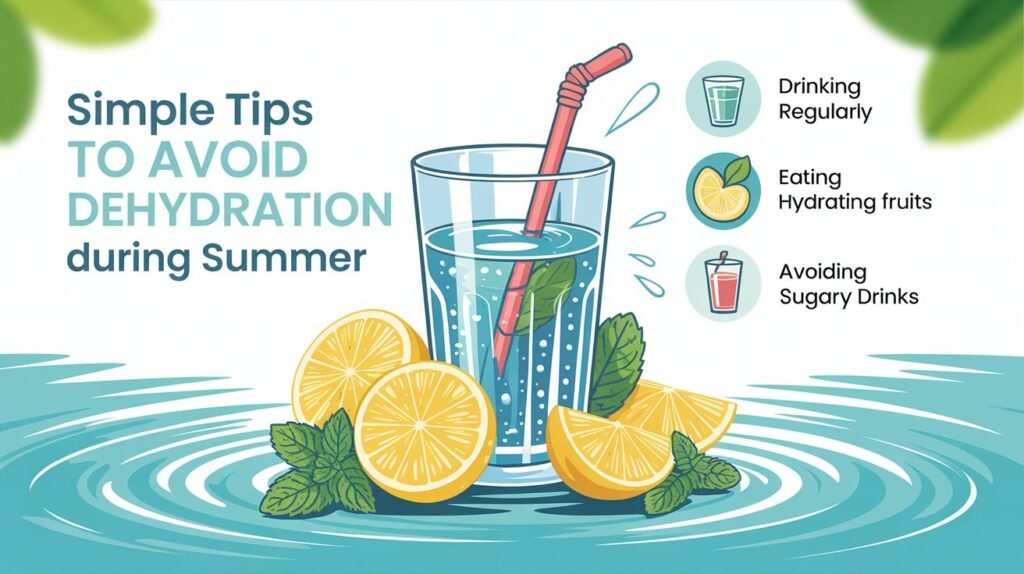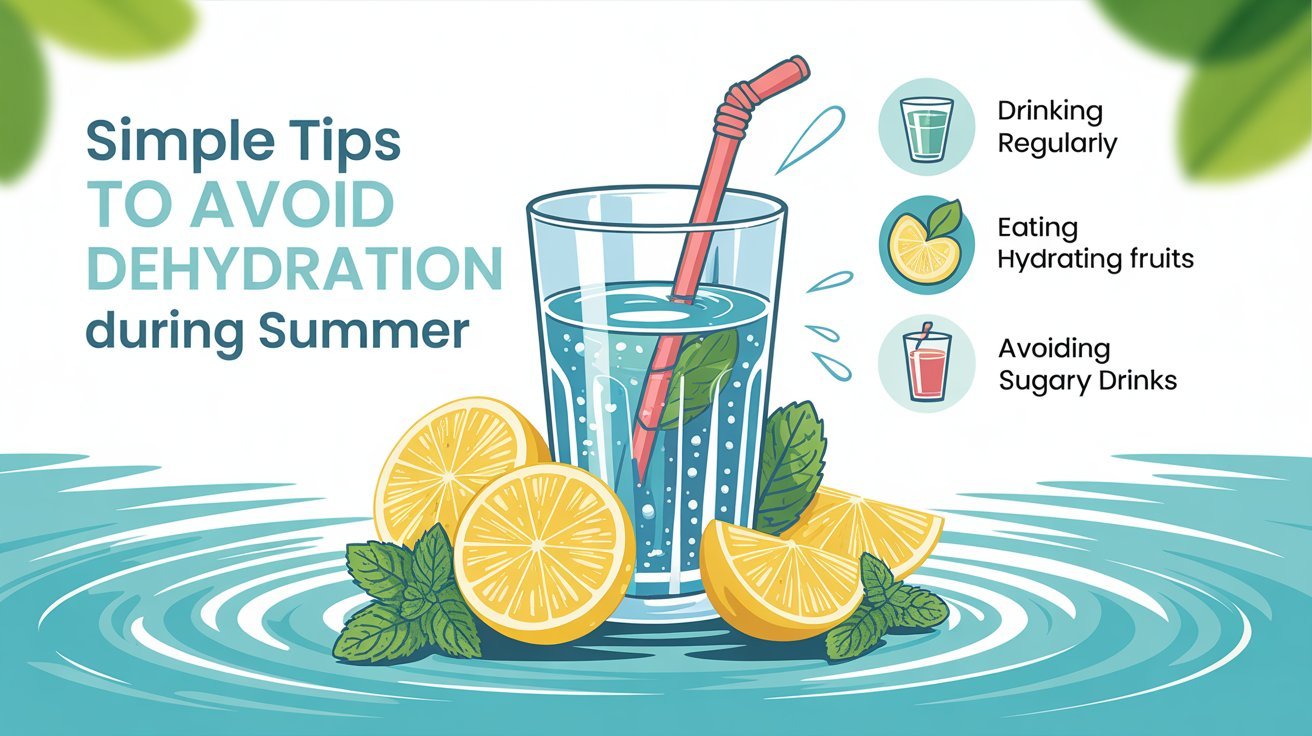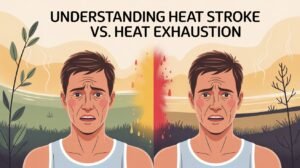
As summer arrives in Pakistan, the scorching heat can adversely impact health. With temperatures often exceeding 40°C (104°F), staying hydrated becomes critical to prevent dehydration and heat-related illnesses. Maintaining hydration is essential for optimal body function, whether outdoors or indoors.
Up to 78% of the body is made of water. The brain and heart are 73% water, while bones contain 31% water. Muscles and kidneys are made up of 79% water, and skin is 64% water. Even the lungs are about 83% water.
Water is essential for many bodily functions, including:
- Helping digestion and removing waste.
- Lubricating joints to keep them working smoothly.
- Producing saliva, which is necessary for eating.
- Balancing chemicals in the body; the brain needs water to create hormones and neurotransmitters.
- Delivering oxygen throughout the body.
- Supporting bones and protecting vital organs.
- Regulating body temperature.
- Acting as a shock absorber for the brain and spinal cord, and for the fetus during pregnancy.
Water is important in warm weather. It helps prevent the body from overheating. When exercising, muscles generate heat, and the body needs to cool down. The main way to lose heat in hot weather is through sweating. As sweat evaporates, it cools the underlying tissues. However, excessive sweating reduces water levels in the body, which can affect normal functions.
Dr. Naila said, “In summer, our bodies lose water through sweat, which can cause dehydration. We should not ignore the signs, such as feeling tired, dizzy, having headaches, dry skin, muscle cramps, and a lack of focus. If dehydration gets worse, it can lead to heat stroke or heat exhaustion. Important signs to note are dark urine, a dry mouth, extreme tiredness, and stiff muscles.”
Many people do not drink enough water and often replace it with caffeinated drinks, teas, and sugary drinks. While these drinks may taste good, they can dehydrate the body faster due to their high salt content. The daily water requirement varies for each person, but a good rule to remember is the 8×8 rule, which suggests drinking 8 glasses of water each day.
Ali (a bodybuilder) shared his experience in the following words, “My gym instructor advised me to stay hydrated, especially when working out. I used to forget to drink water while I was exercising, and it made me feel tired. Now, I set reminders on my smartphone to help me remember to drink water regularly. I also carry a water bottle with me. This simple change keeps my energy up and helps me do better in the gym.”
However, some medical conditions may require fluid restrictions, so it’s important to consult a doctor about the right amount of water for every individual’s needs.
To prevent dehydration, it’s best to stay out of the sun during peak hours and increase water intake in humid weather. Exercise also increases the risk of dehydration due to sweating, so drinking more water before, during, and after workouts is important.
Rabia, a nutritionist at Services Hospital, says that electrolyte drinks help replace fluids when you sweat a lot. Cold or caffeinated drinks might seem refreshing, but they can make you more dehydrated and aren’t good for you. She often sees patients who get dehydrated from illnesses like a sore throat or stomach issues. This happens because they may not want to eat or lose fluids from vomiting or diarrhea. It’s very important to keep drinking water and electrolyte drinks, even when you’re not feeling well.”
Hydration does not rely on water intake. A balanced diet with fluid helps to maintain body water count. Fruits and vegetables like watermelon, cucumbers, oranges, and tomatoes are excellent choices. Watermelon is over 90% water and loaded with vitamins, while cucumbers contain about 95% water. Oranges provide hydration and are rich in vitamin C and potassium, essential for fluid balance.
Yogurt and lassi are refreshing options. These yogurt-based drinks refill electrolytes and support digestion, making them ideal for summer. Coconut water is another excellent choice, packed with potassium and magnesium to restore fluids lost through sweating. Mint-based drinks are energising and promote digestion.
Carrying a reusable water bottle boosts regular sipping rather than waiting until thirsty. Limiting caffeinated and sugary drinks is also important, as these can lead to dehydration. Foods like bananas and leafy greens assist in refilling lost minerals. Homemade electrolyte drinks can be created by mixing water with a pinch of salt and a squeeze of lemon juice.
Opting for lighter meals during hot weather is advisable. Heavy, oily foods can increase body temperature and cause lethargy. Choosing salads, soups, and water-dense fruits and vegetables helps maintain hydration and energy levels.
As Dr. Rabia emphasizes, “Hydration is key to support our overall health.” Each choice we make contributes to our well-being. It is important to listen to your body’s needs and seek professional guidance when necessary.




